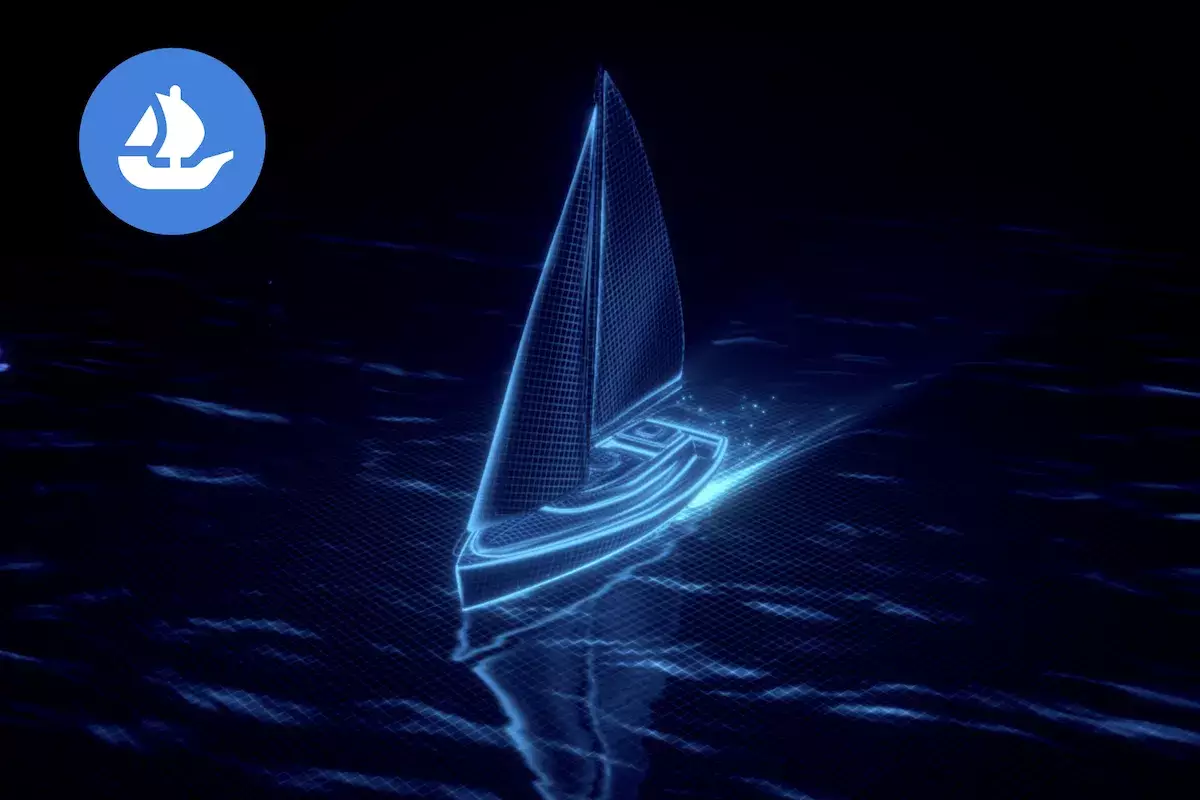The narrative surrounding NFTs has been anything but steady, with platforms emerging and waning as the marketplace evolves. Central to this landscape is OpenSea, once a dominant force that claimed the lion’s share of NFT trading. However, as competition intensifies and market dynamics shift, OpenSea has found it essential to innovate and adapt. This article delves into the recent developments within OpenSea, particularly the unveiling of its new OS2 platform, and the implications of its strategies for both users and the broader NFT community.
OpenSea was established at a time when NFTs were still a novel concept. It quickly became a go-to platform for users venturing into digital collectibles, effectively simplifying the listing and trading process. By 2022, it was the unrivaled giant in the space, controlling over 90% of NFT transactions. However, as history has shown in tech spaces, market leadership can erode rapidly if a platform becomes complacent.
Enter competitors like Blur and Magic Eden, which introduced innovative features and aggressive incentive structures. These competitors appealed to users seeking new experiences, resulting in OpenSea’s market share decline. Awareness of the growing competition prompted OpenSea to re-evaluate its strategies, leading to the integration of new features and services aimed at regaining market relevance.
In response to these competitive pressures, OpenSea launched OS2—a new platform currently in private beta. This transition represents not just a technical upgrade but a strategic shift as well. The introduction of OS2 is part of OpenSea’s broader goal to maintain its relevance in the NFT ecosystem. The anticipation surrounding OS2 stems from its promise to enhance user engagement and streamline processes within the platform.
One of the most talked-about changes within OS2 is the rollout of the Experience Points (XP) system. This feature rewards users for participating actively on the platform, whether by listing NFTs, placing offers, or engaging in community discussions on Discord. By incentivizing these activities, OpenSea is taking a page from Blur’s playbook, seeking to create an ecosystem of engagement that encourages users to return to the platform.
A notable aspect of OS2’s launch is the preferential treatment given to Gemesis NFT holders, who were granted immediate access to the private beta. This strategy not only rewards early adopters but also fosters a sense of community loyalty within the user base. However, this has generated criticism, particularly from high-profile traders who feel sidelined despite significant trading volumes. The dichotomy of experience—between long-term users without Gemesis NFTs and newer participants—has raised questions about fairness and inclusivity.
Providing exclusive access to specific user groups can be a double-edged sword. While it aims to reward loyalty and engagement, it risks alienating other valued users who contribute to the platform’s success. OpenSea has acknowledged these concerns, asserting that they have not forgotten their “OGs” but has yet to provide a clear roadmap for including those locked out of early access.
Adding fuel to the discussion is the chatter surrounding a potential token airdrop associated with OS2. While OpenSea has historically refrained from issuing its own tokens, speculation is rampant among the community about how XP might translate into real-world value, particularly if it culminates in a new token launch. The tantalizing prospect of free cryptocurrency often draws significant interest, especially in a landscape where tokens can appreciate substantially in value.
This speculation remains layered with uncertainty. Regulatory challenges loom over U.S.-based cryptocurrency operations, adding complexity to any potential token release. For now, OpenSea’s silence on the matter leaves users to wonder about the future implications of their engagement on the platform and what rewards, if any, they may access down the line.
As OpenSea embarks on this new chapter with OS2, the vibrant yet unpredictable NFT market presents both challenges and opportunities. User engagement, community feedback, and competitive pressure will shape the platform’s evolution in the coming months. OpenSea’s ability to balance attracting new users while simultaneously rewarding loyal customers will be crucial for the platform’s long-term viability.
The success of OS2 will hinge on OpenSea’s responsiveness to its user base as they maneuver through the complex NFT terrain. As the beta progresses, stakeholders await signals about the future of OpenSea and the much-anticipated clarity around potential token offerings. For NFT enthusiasts and traders, the landscape continues to shift, necessitating keen awareness of developments and adjustments on one of the most pivotal platforms in the digital collectible sphere.

